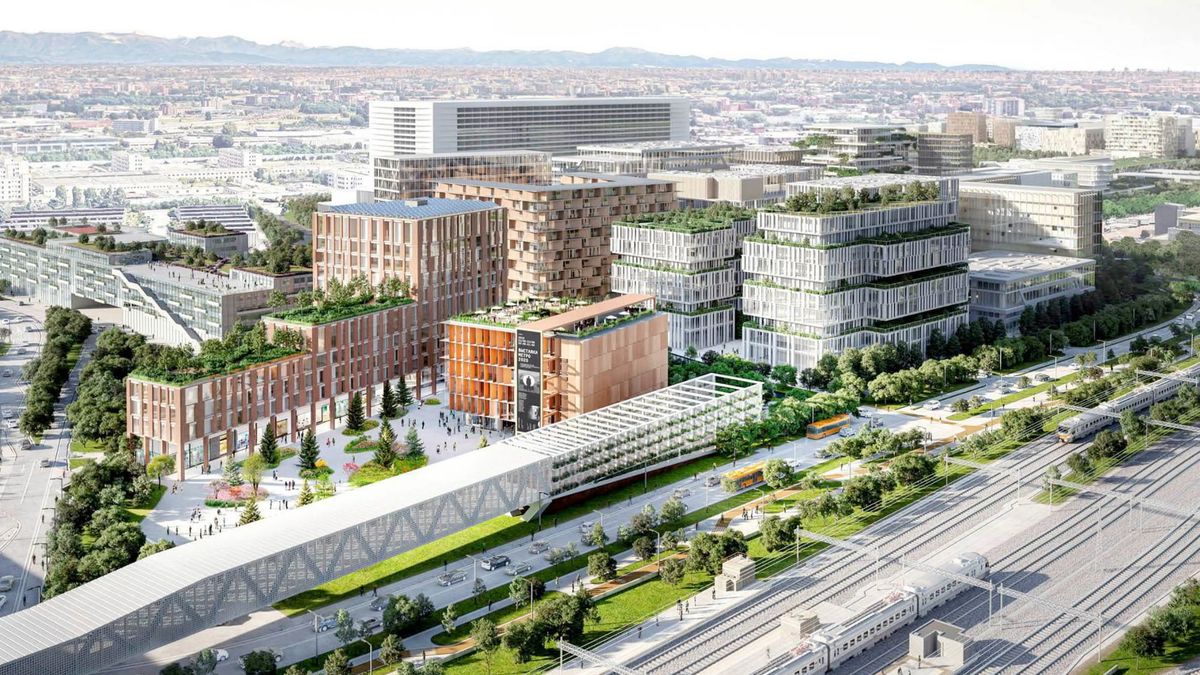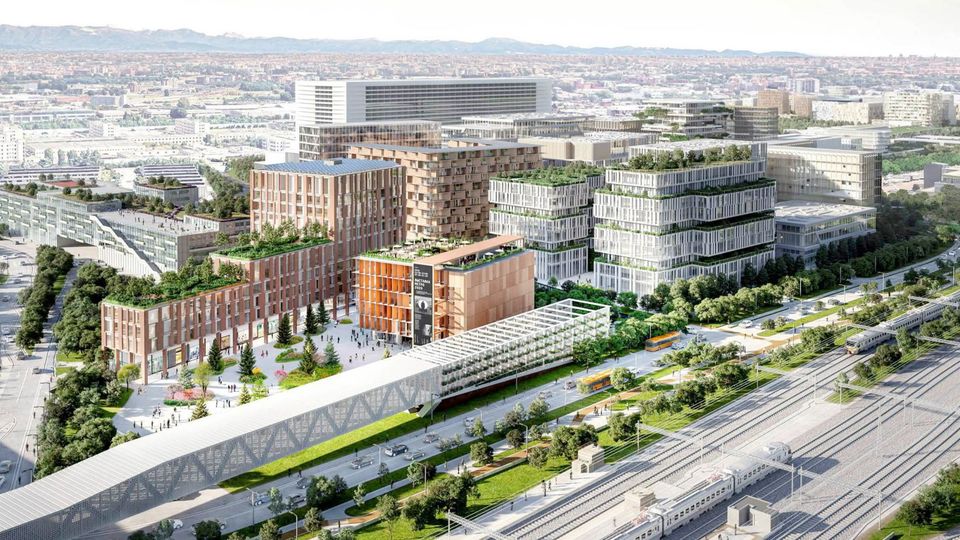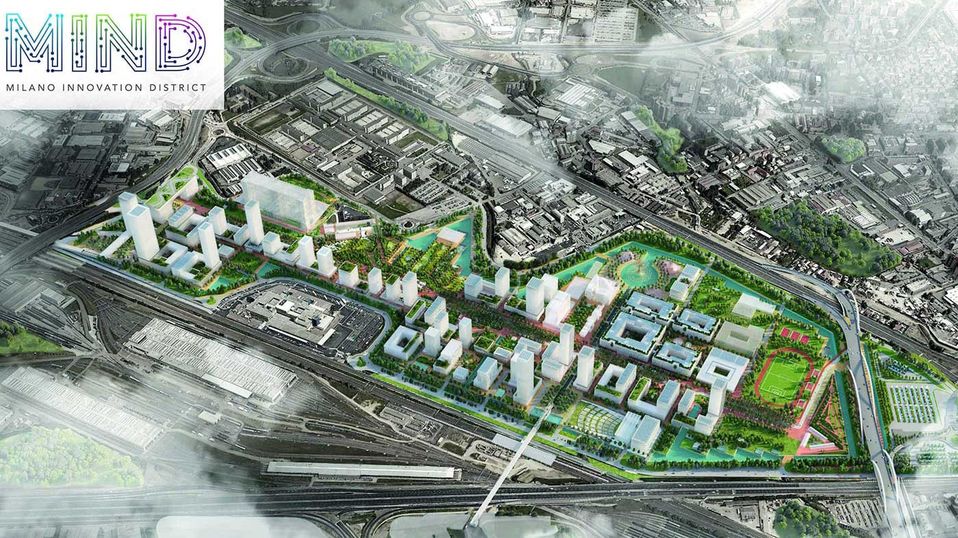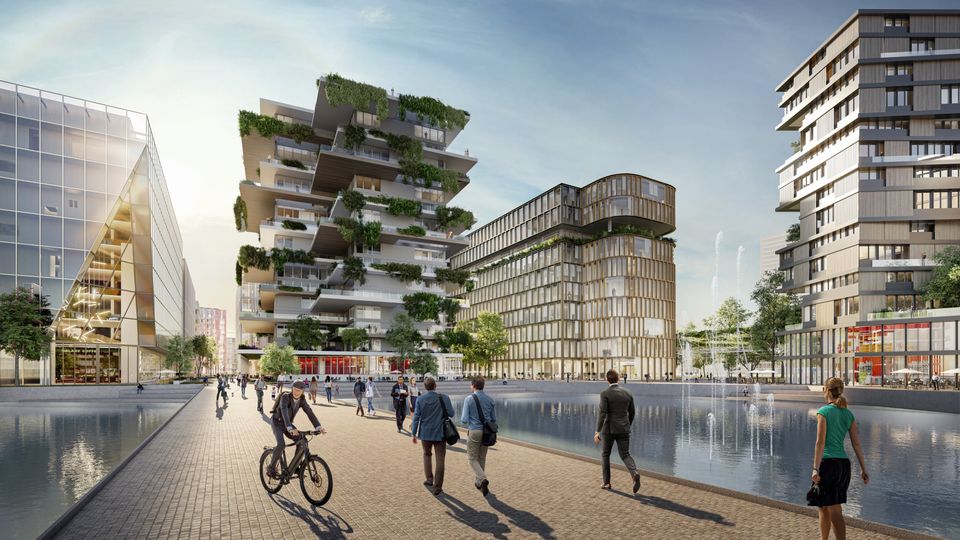Milan’s abandoned fairgrounds get a Silicon Valley-style reboot
Six years after visitors left, an ambitious makeover of the sprawling site is just getting started.

Six years after Milan’s World Expo closed its doors to visitors, the sprawling fairgrounds that were once a target of protesters are finally set for a makeover.
Italy’s financial center is taking cues from Silicon Valley to transform an area more than twice the size of the Vatican into a sustainable, post-pandemic technology center. The €4.5 billion redevelopment of one of Europe’s biggest vacant lots includes research labs, a startup accelerator and a science campus.
Housing and working space for 60,000 people, including accommodation for 3,000 students, will be connected by one of the longest linear parks in Europe along the main “decumano” – a nod to the East-West corridor in the city planning of ancient Rome.
With the goal of becoming a landmark for green urban planning, the district will be completely powered by renewable energy and will be car-free, with access provided by high-speed rail and Milan’s public transport system – a second metro station will be operational by 2025.
To limit waste, some of the old pavilions will be refurbished, while the material of those that are demolished will be 98% recycled. Timber has been chosen as the main structural material for the office buildings.
Despite the bold targets, there’s a sense that the MIND Milano Innovation District is a work in progress. Some of the initiatives – including details about housing and other facilities in planned mixed-use spaces – appear sketchy. Meanwhile, six years of disuse is evident in the creaking skeletons of Expo buildings and fading welcome signs for past visitors.
But progress is visible. More than 100 scientific staff are at work at the Human Technopole, a research institute for the life sciences, while employees of drugmaker AstraZeneca have moved to their new Italian headquarters on the site. A facility for U.S. genome-sequencing company Illumina is opening in the coming months, and a 16-story hospital is set to start operating in September.
The developers – a public-private consortium led by Australia’s Lendlease Group – are building off a mixed legacy.
“Milan had the properties of what we believe is a gateway city, where key business thrives,” said Tony Lombardo, chief executive officer of Lendlease, which is investing 2.5 billion euros in the project, along with its partners.
The investors are working together with local authorities on the development, a rarity in Italy that could help cut through the country’s notorious red tape.
The cooperation has helped bring in high-profile tenants like the University of Milan, which is scheduled to complete a new science campus with space for 18,000 students and 1,000 lecturers and researchers in 2025.
“Having a public-private partnership, with the university and the hospital in the commercial district, you have the ability to really collaborate in a very different way,” Lombardo said. “The partnership is very, very strong, and that’s really helpful for us.”
To develop new companies, Lendlease, the Lombardy region and Italian startup promoter Cariplo Factory signed an agreement with SkyDeck, the accelerator of the University of California, Berkeley – the organization’s first such project outside its home state. Lombardy and Cariplo are making €2.75 million available over the next three years, while Skydeck advisers will provide support for at least 60 national and international startups.

“Too many small, promising companies in Italy end up dying because they are not helped to grow,” said Alberto Sangiovanni-Vincentelli, chair of electrical engineering and computer sciences at Berkeley. “Milan could become the attraction pole of many European startups.”
That’s a far cry from where the city is now. Italy ranks only 12th for venture capital investments in Europe with €3.6 billion raised in the last five years, according to Dealroom data released in September. The combined enterprise value of Italian startups is €21 billion, behind smaller economies such as Poland, Finland and Belgium.
The push to move up the ranks pits Milan against other cities like London, Paris and Amsterdam, as Europe seeks to better rival the U.S. and China in developing new technology.
Berlin, Europe’s second-biggest city for startups, is proceeding with a similar innovation hub at its former Tegel airport, including research and industrial space for about 20,000 employees.
Milan’s new innovation district – located about 12 kilometers from the city’s famed Duomo – may be its best chance to close the gap, even if it relies on a rather dated model, according to Christian Iaione, professor of urban law and policy at Luiss University in Rome.
“Its initial design was quite conventional” and lacked tie-ins with small local companies and social movements, he said. “But I am sure Milan is already updating the conceptual and institutional design of MIND, moving away from what has been already done.”
Lendlease’s Lombardo indicated that the project is indeed evolving and the cooperation with the local authorities is helping to accelerate that process.
“The government has been really good to work with,” he said. “Everyone is working to create a more open environment, for people to share ideas and collaborate. I trust this will continue in the long term.”
This article is published under license from Bloomberg Media: the original article can be viewed here

